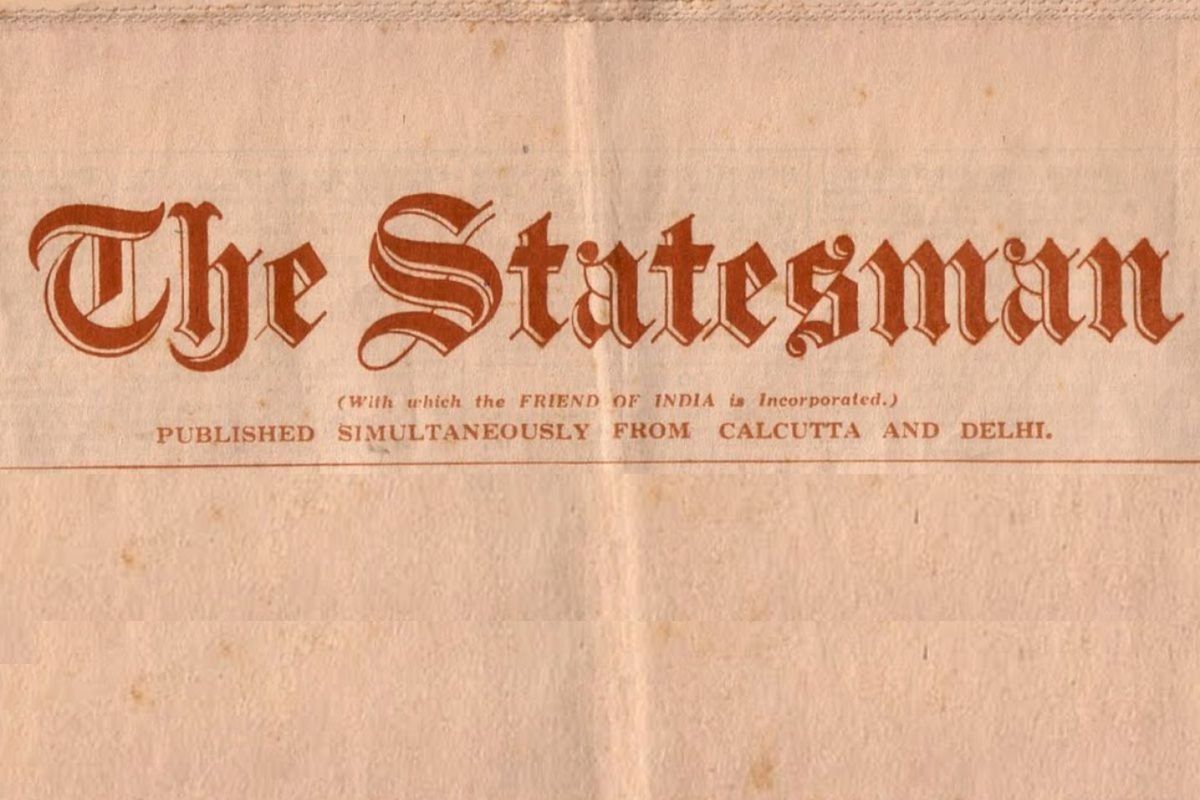A HAPPY JOURNEY
This evening it was about honoring those who made it possible for the oldest English daily to host its most prized annual celebration of heritage, the Vintage Car Rally, which enters its 53rd year this year.
On this day a century ago, these were some of the news items The Statesman readers got to read about India and the world.

OCCASIONAL NOTE
The text of Sir Edward Maclagan’s first address to the Punjab Legislative Council fully bears out the optimistic impression conveyed by the telegraphic summaries. His Honour, in effect, propounds the familiar question, which was asked so frequently and so emphatically during the recent war – “Are we downhearted?” – and answers it in the very decided negative to which we have long grown accustomed. From the depressing political present, with its disorders inquiries, its boycotts, and its preparations for an Extremist congress at Amritsar, the new Lieutenant-Governor turns with a not unnatural relief to the more cheerful prospect of the commercial and economic future. He enters a timely reminder that Calcutta and Bombay are not the only theatres for commercial enterprise in India. “There are plenty of enterprising men in the Punjab,” says Sir Edward Maclagan, “there are plenty of men with reasonable supplies of money, and there is a growing supply of men with practical knowledge of industry.” The conditions specified – especially the last one – are precisely those which make for sound and permanent progress, and, whether Punjab industry does or does not participate in the phenomenal “boom” which is sweeping all industries in Bombay and Bengal into its orbit, Sir Edward Maclagan has drawn a picture of the provincial resources and possibilities which will not be lost upon the investing public.
ALLEGED THIEF IN BORROWED CLOTHES
Advertisement
Mr. R.H.M. Rustomji, Honorary Presidency Magistrate, had before him, at the Bankshall Street Police Court yesterday, two rather unusual cases of theft from steamers. In one of these, Sheik Eshuk, it was stated, went on board the steamer Bhutani lying at Jaggarnath Ghat where, entering the cabin of the clerk of the vessel, he rigged himself out, in the clothes of the absent clerk, not forgetting to include in his outfit a hat and a pair of boots. Thus attired he paid a visit to the steamer Momooni and was about to investigate the contents of one of the cabins when he was arrested. In the other case one Sheik China was charged with attempting to pick the pocket of one Salamat Ali, a passenger on the ferry boat plying between Howrah and Chandpal Ghat. The accused managed to get hold of Salamat Ali’s purse, but was unable to withdraw his closed fist and was thus caught in the act. Both accused have been remanded to police custody.
URBAN AND RURAL COUNCILLORS
Mr. Kamat, member of the Bombay Legislative Council, has presented an elaborately reasoned protest against the proposals of the Franchise Committee, that in Bombay, the Punjab, and the Central Provinces, candidates seeking to represent an urban or rural constituency must have their place of residence within their constituency. The protest argues against this restriction, particularly in Bombay, as placing an arbitrary handicap on the future composition of the Bombay Council, as against Bengal and Madras, and contends that the residential qualification violates the principle of giving electors the widest freedom of choice of representatives.
PRINCE S FAREWELL TO CANADA
The Prince of Wales, in a speech at the Canadian Club, said he had been given a most marvellous and enthusiastic welcome everywhere in Canada, and had received the kindest hospitality, also hundreds of kind gifts and letters. He thanked the Canadian Government for the admirable arrangements for his tour, and in conclusion said he was not conceited enough to regard all this great kindness and hospitality as personal. He knew they came from the whole nation, regardless of race and party, and were given him as the King’s son and heir. He valued them especially because they expressed the same common sentiment which made Britishers stand together in the war, and would keep them solid and united for ever.
JUSTICE IN EGYPT
Referring to the fact that ten of the witnesses in the recent political prosecutions in Egypt have been assassinated, Justice A.C. McBarnet, of the Egyptian Court of Appeal, who is now at Home, declares that it is a common gibe among the natives that the man who befriends the English in Egypt is a fool for his pains, as the English will assuredly let him down. This is a matter, he urges, which touches British prestige very nearly, and unless the sternest measures are taken to protect those witnesses who survive and other well-disposed natives the consequences will be exceedingly grave. It is lamentable that such a failure as is implied should have occurred. The murder must be perfectly well known to the Omdehs and notables of the villages where these crimes occur, and the only way of checking such an outbreak is to make these notables personally responsible.
Advertisement